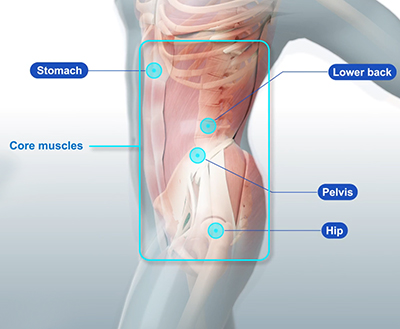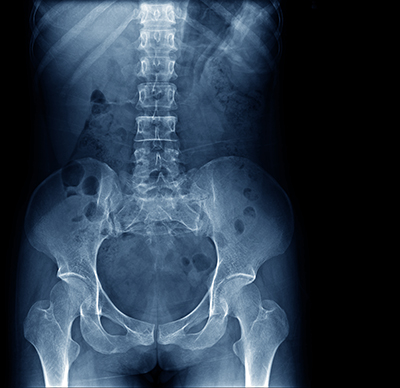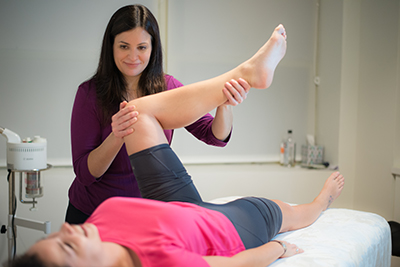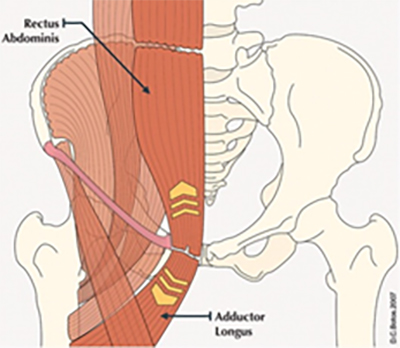Core Muscle Injury

What is a Core Muscle Injury?
The muscles of the core consist of all muscles from the chest to the mid-thigh. They include the front and side abdominal muscles and the thigh muscles. Core muscle injuries are tears or a series of micro-tears that occur in these muscle groups. The muscles that attach to your pubic bone are the most commonly injured core muscles.

What are the Causes of Core Muscle Injury?
A core muscle injury can happen gradually or suddenly. Overstretching abdominal muscles by extending at the waist, overstretching inner thigh muscles while doing a split, swinging a golf club repeatedly, jogging, or any type of activity that involves the core muscles, whether it's sports, work-related, or recreational activity can result in a core muscle injury.

What are the Symptoms of Core Muscle Injury?
Some common symptoms for a core muscle injury may include:
- Abdominal pain or groin pain following an acute injury
- Abdominal pain or groin pain that gets worse over weeks, months, or years
- Chest or rib pain
- Increased abdominal or groin pain during and after activity
- Unilateral or bilateral pain in the abdomen or groin area
- Fleeting pain on one or two sides
- Pain that seems to move from the abdomen to groin or thigh
- Increased abdominal or groin pain or discomfort with exertion such as sprints, kicks, lifts
- Increased abdominal pain when coughing, sneezing, or turning over in bed
- Inability to perform daily activities due to abdominal or groin pain

Diagnosis of Core Muscle Injury
Your doctor will review your medical history and symptoms and based on this a physical examination will be performed. Your doctor may also recommend the following diagnostic tests:
- X-rays: This study uses electromagnetic beams to produce images of the bones and can detect fractures or injuries.
- MRI Scan: This is an imaging study that uses a large magnetic field and radio waves to detect any damage to the soft tissues.
- Ultrasound: This study uses high-frequency sound waves to produce images of the tissues.

What are the Treatments for Core Muscle Injury?
For core muscle injuries, conservative treatments include:
- Application of ice to the painful area
- Activity modification
- Anti-inflammatory medications
- Physical therapy for core stability
- Therapeutic injections and procedures
- Acupuncture
- Massage therapy

Surgical Treatments
Depending on the type and severity of the core muscle injury, various surgical options may include:
- Suturing the muscle attachments to the bones and neighboring ligaments in order to provide stability to the pubic joint
- Reattachment of rectus abdominis muscles to the pubic bone in an open surgical operation to reconstruct the pelvic floor
- An adductor compartmental decompression or repair for adductor muscle injuries
